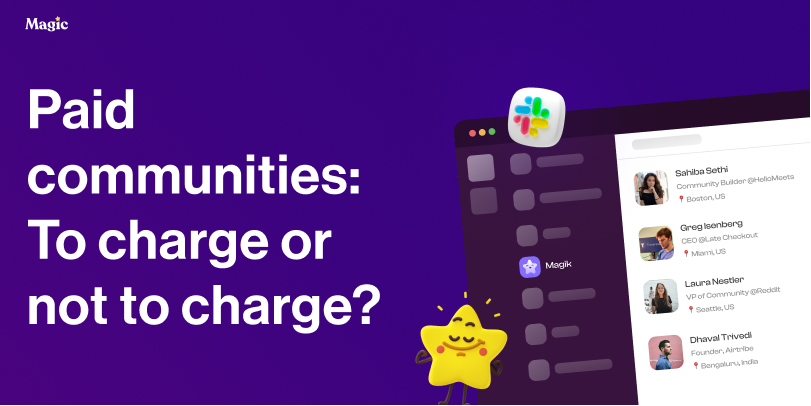Picture this: You've just launched your very own online community. Congrats! But now you're faced with a seemingly impossible task – how to select the perfect platform for your community. If you pick the wrong one, your community will suffer.
Don't worry, we're here to help. We've compiled a list of the most important factors to consider when selecting an online community platform. By the time you're done reading this, you'll know exactly which platform is right for your community.
Let's get started!
Define the purpose of your online community.
What is it that you and your members hope to accomplish by being a part of this community? Is it to connect with others who share your interests, or to provide customer support for a product or service? The first step is to figure out what you want from a community platform. Are you looking for a place to share ideas, build relationships, or learn something new? The type of community platform is important to consider, as each one offers different features and benefits.
Once you know the purpose of your community, it will be much easier to select a platform that supports that purpose.

Consider the size and functionality of your community.
Will it be large or small? Interest or learning based? The answers to these questions will help you narrow down your options. Then, it's time to evaluate features and functionality. What features are important to you and your members? Do you need a platform that supports groups, forums, blogs, or wikis? Does it need to integrate with other software or services? Make a list of must-have features and compare the different platforms side-by-side.
Cost is always a consideration.
How much are you willing to spend on an online community platform? Some platforms are free, while others charge monthly fees. Keep in mind that you usually get what you pay for – so don't skimp on features just to save a few bucks. Additionally, some platforms offer more features than others. It is important to determine what features are essential to the community and which features are missing from the platform.
.png)
Decide on the level of interactivity you want.
Do you want to be a part of a community where you can interact with other members, or is it more of an online forum style where you can leave comments but not participate in discussions? Some platforms allow members to post content and interact with one another directly, while others offer more generic tools for sharing and networking. Many different online communities are available, so it is important to decide what you want and what will best serve your needs.
Consider your business’s need for visibility and outreach.
Some platforms are designed specifically to help businesses build relationships and connections with potential customers, while others are designed to help businesses build relationships and connections with other businesses within the platform.
Following are a few popular platforms that have made their space in the community landscape:
LinkedIn: LinkedIn is one of the most popular online community platforms, and is perfect for businesses with a wide range of needs and sizes. LinkedIn offers a robust set of tools for building connections and managing relationships with customers and partners and a wide range of features for creating and managing a business’s content.
Google+: Google+ is a relatively new platform designed specifically for business use, and offers many features and flexibility of more established platforms like LinkedIn and Facebook, but with a focus on building relationships and connecting with customers.
Twitter: Twitter is a great platform for keeping customers and partners up to date on your latest news and offers a wide range of tools for building relationships and engaging with your community.
HubSpot: HubSpot is one of the most well-known and popular community platforms, and is perfect for businesses with a wide range of needs and sizes.HubSpot provides a comprehensive set of tools for managing your business’s content, building relationships with customers and partners, and managing your community’s interactions.
Discord: Discord is a powerful community platform that allows users to connect in real-time. With Discord, users can easily communicate with each other through voice and text chat, and can also share files, images, and other media. Discord also provides a rich user interface that makes it easy to navigate and use. Overall, Discord is an excellent community platform that can be used by anyone who wants to connect with others in a real-time environment.
Slack: Slack and Discord are very similar. Slack is a messaging app for teams that need to communicate and collaborate on projects. It's simple to use and can be accessed on any device. Slack integrates with various other apps and services, making it even more powerful.
Choose a Platform That’s Scalable and Sustainable
One of the most important factors when choosing a community platform is scalability. Scalable platforms allow communities to increase engagement and content output without moving to a new platform. In addition, sustainable platforms can maintain their functionality over time.
Be sure to evaluate the platform’s ability to grow and expand, as well as its ability to maintain the platform’s functionality.
Wrapping up
There are many types of community platforms available, so it's important to choose the one best suited to your needs. Once you've considered all of the above factors, it's time to decide which platform is right for your community. We know it's daunting, but we're confident you'll make the perfect choice for your unique needs.




